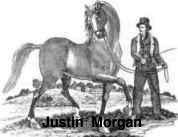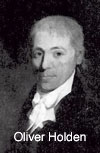 In the preface to his Collection of the Best Psalm Tunes, 1764, Josiah Flagg admits that "we are oblig'd to the other Side the Atlantick chiefly, for our Tunes, the Paper on which they are printed is the Manufacture of our own Country." The somewhat apologetic tone (or defiant, perhaps) of this remark may stem from growing animosity toward Great Britain because of new taxes levied against the colonies as a result of French and Indian War (1754-1763), animosity that eventually led to revolution. As the seeds of independence grew they produced a desire to curtail dependence on Britain for goods. Enterprising colonists began to manufacture goods to be sold within the colonies. The first signs of independence in the area of church and singing-school music took place in 1770 with the publication of original "Psalm tunes, anthems and canons" by the American-born composer William Billings in The New England Psalm Singer with its frontispiece engraved by Paul Revere. Billings developed his considerably individualistic musical style from English models with the needs of the singing schools in mind. Of his fuging tunes he said:
In the preface to his Collection of the Best Psalm Tunes, 1764, Josiah Flagg admits that "we are oblig'd to the other Side the Atlantick chiefly, for our Tunes, the Paper on which they are printed is the Manufacture of our own Country." The somewhat apologetic tone (or defiant, perhaps) of this remark may stem from growing animosity toward Great Britain because of new taxes levied against the colonies as a result of French and Indian War (1754-1763), animosity that eventually led to revolution. As the seeds of independence grew they produced a desire to curtail dependence on Britain for goods. Enterprising colonists began to manufacture goods to be sold within the colonies. The first signs of independence in the area of church and singing-school music took place in 1770 with the publication of original "Psalm tunes, anthems and canons" by the American-born composer William Billings in The New England Psalm Singer with its frontispiece engraved by Paul Revere. Billings developed his considerably individualistic musical style from English models with the needs of the singing schools in mind. Of his fuging tunes he said:
“It is well known there is more variety in one piece of fuging music, than in twenty pieces of plain song. While each part is straining for mastery, and sweetly contending for victory, the audience are most luxuriously entertained, and exceedingly delighted; in the mean time their minds are surprisingly agitated, and extremely fluctuated, sometimes declaring in favor of one part, and sometimes another. Now the solemn bass demands their attention, now the manly tenor, now the lofty counter, now the volatile treble – now here, now there, now here again. O enchanting! O ecstatic! Rush on, ye sons of harmony.” (As quoted by Lowell Mason in the preface to The National Psalmist.)
 William Billings along with Daniel Read, Timothy Swan, Justin Morgan, Oliver Holden, Lewis Edson, Jeremiah Ingalls, and others were self-taught musician who composed and compiled tunebooks and traveled around the country teaching in the singing schools. Most of them were trained in or held other professions: William Billings as a tanner, Timothy Swan as a hatter, and Lewis Edson as a blacksmith. Justin Morgan was a successful horse breeder and Oliver Holden was a carpenter. The music of these "Yankee Tunesmiths" was wildly popular in early America up to about 1800 but was shunned by reformers of the next century. Fortunately its eradication was resisted in the rural Northeast, the West and Upland Southand where it lived on in shape-note tunebooks and retrospective collections like The American Vocalist.
William Billings along with Daniel Read, Timothy Swan, Justin Morgan, Oliver Holden, Lewis Edson, Jeremiah Ingalls, and others were self-taught musician who composed and compiled tunebooks and traveled around the country teaching in the singing schools. Most of them were trained in or held other professions: William Billings as a tanner, Timothy Swan as a hatter, and Lewis Edson as a blacksmith. Justin Morgan was a successful horse breeder and Oliver Holden was a carpenter. The music of these "Yankee Tunesmiths" was wildly popular in early America up to about 1800 but was shunned by reformers of the next century. Fortunately its eradication was resisted in the rural Northeast, the West and Upland Southand where it lived on in shape-note tunebooks and retrospective collections like The American Vocalist.
We have come to value the spirited free thinking evident in the music of Billings and that of his successors. Perhaps the most interesting description of this genre, albeit pejorative, is by the reformer Lowell Mason in a retrospective on the history of American church music:
In 1770, was published “The New England Psalm Singer,” by William Billings, a book consisting of original tunes in a style of melody and of harmony quite below anything that had yet appeared. The author, if we may judge by his books, was quite ignorant of the principles of harmony and composition; indeed he professes to be governed by no laws but those of his own fancy, and he rejects all those rules to which good taste and experience had led the best composers, and in the observance of which they had been successful. Other works followed, in which the peculiar style of which Billings has sometimes been called the American father, was more fully developed. This consists in an easy and popular (though often low and vulgar) flow of melody for Tenor voices, with harmony parts for a Treble and Alto above, and a Bass below. In many of these tunes, most indeed of those that became favorites, imitative or fugal points were taken up, by the different parts, and treated often with ingenuity of contrivance, but usually without reference to proportion, symmetry, or analogy, and always without regard to the commonly received laws of harmony, canon and fugue. But as these laws were unknown, and musical science wholly uncultivated, no one’s taste was offended by the lawless and awkward progression of chords, or by the incongruous convolutions of the parts; and the tunes were admired in proportion to the popular taking character of the melodies, or to the wonderment with which the different parts were introduced, twisted about, entangled, bewildered, evolved, and at length brought out in safety. As this style gained the ascendancy, and amusement took the place of edification and worship, the “Old Hundredths,” “Windsors,” “Yorks” and “Dundees,” were, like the ejected ministers in English and Scotch history, driven away into the wilderness. (Preface to The National Psalmist, 1848)